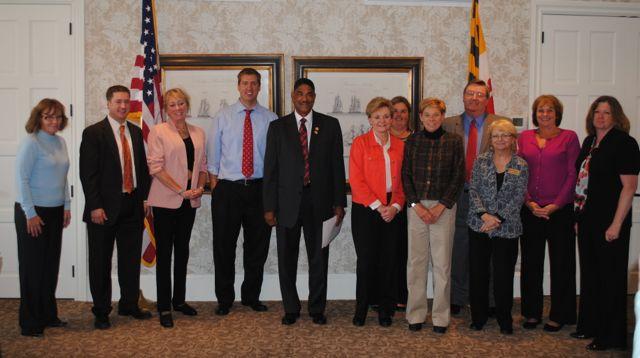Solar farms, at least in the abstract, seem to be one of the more perfect solutions for this country’s crippling dependence on fossil fuels. Passive and free rays from the sun generate a reliable source of energy while at the same time offering struggling farm landowners the opportunity to repurpose their property so they can leave a financial legacy to their families. Case closed, so to speak.
But Steve Kline, president of the Eastern Shore Land Conservancy, says in a long-form interview with the Spy that the issue is far more complex and challenging when discussing the challenges facing solar farm development on the Mid-Shore of Maryland. And that includes the insight he shares that 60% of farm acreage in this region is leased, not directly farmed by the owners. This leads to a fundamental disconnect in land-use decisions, particularly concerning the adoption of solar farms.
Kline notes that this significant shift in local land-use decision-making is important. Utility-scale solar projects (over two megawatts) bypass traditional municipal or county planning processes, a change driven by court decisions and statutes. This controversial preemption may undermine local authority and public involvement in land management.
Steve also notes that the Eastern Shore Land Conservancy is grappling with integrating solar development while preserving substantial agricultural land. A major concern for ESLC is the long-term impact of solar farms on agricultural land. Contrary to the solar industry’s portrayal of solar farms as temporary land use, Kline argues that the transformation is effectively permanent, jeopardizing the future of agriculture.
Maryland has witnessed a significant reduction in farmland over the past decades, a trend that solar farm development could exacerbate. Kline highlights the economic implications, noting that large-scale solar development could drive full-time farmers out of business, as agriculture also requires extensive contiguous lands for viability.
A particularly alarming aspect Kline mentions is the removal or displacement of topsoil in solar farm setups, which could have long-term detrimental effects on the land’s agricultural potential. To mitigate these impacts, ESLC proposes a mitigation fund. For every acre of farmland converted to solar use, a fee would be imposed to fund conservation efforts in the same county, aiming to balance out the agricultural land loss.
Kline stresses that the rush to deploy solar energy should not overlook the critical nuances of land use and conservation. He underscores the need for public engagement and legislative attention to ensure a balanced approach that respects both renewable energy goals and agricultural preservation. The interview ends with a call for citizens to communicate their concerns to legislators, emphasizing the importance of deliberate, well-informed decision-making in this critical area.
But the reality of using precious farm land for solar harvesting is simply not that simple. And this is particularly true on the Mid-Shore and its unique abundance of potential sites for new solar installations.
This video is approximately minutes in length. For more information about the Eastern Shore Land Conservancy and solar farm land use please go here.



